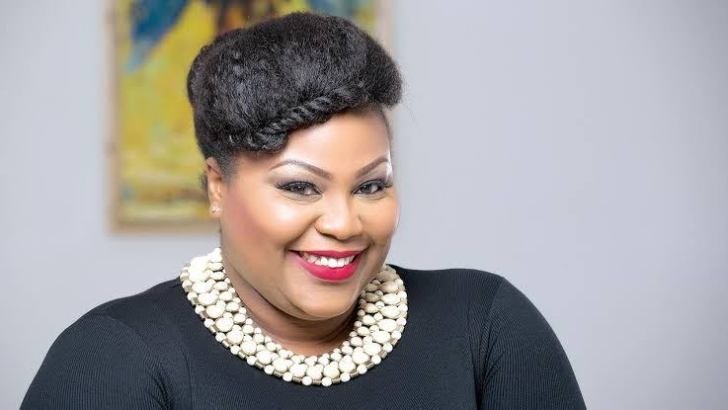Growing up in Lagos, Nigeria, my mother’s hair salon housed many vivid memories. I recall how my eyes would tear up from the sting of menthol as I greased scalps. I remember my arms cramping from prepping hair extensions, or worse, undoing micro braids. (This was the 1990s. These days, we are more into Peruvian weaves, wigs, and crochet braids.)
I also remember eavesdropping on women swapping recommendations for skin lightening products. Some women gave directions to beauticians who were known for mixing special creams. Others would exchange homemade concoctions, like how combining certain products with moisturizer could mitigate the harshness of the chemicals, or how a certain egg-based shampoo made for effective lightening results. Sometimes code words like skin toning, brightening, or glowing would be used in place of the pejorative “bleaching.”
Thinking back, the question “what are you using?” was a common refrain in my youth.
Personally, I didn’t feel like I needed to be lighter, but I certainly didn’t want to get darker. Like so many Nigerian girls and women, I found myself avoiding the sun as much as I could, a habit that continued into my early adulthood. My older sister is very light skinned, and growing up, it was palpable how both men and women fawned over her. Somewhere in the depths of my subconscious, I too had equated lighter skin tone with beauty.

As I entered my early 20s, I began to interrogate beauty standards and those ideals started to lose their power. But still, despite all the work I’ve done to accept my natural color, when I walk into a salon to get my eyebrows waxed, someone inevitably recommends a product to, as they put it, “heighten my glow.”
Today, the global skin lightening industry is estimated to be in the multibillion dollar range. In Africa, Nigeria is the largest consumer of skin lightening products. While there is no substantial data on the use of skin lightening products around the world, a World Health Organization report claims that 77 percent of Nigerian women use them on a regular basis. Countries like Togo, South Africa, and Senegal are not lagging too far behind.
Skin lightening, however, is not limited to Africa. In 2017, according to Future Market Insights, Asia-Pacific made up more than half of the global market for skin lightening products, with China accounting for about 40 percent of sales, Japan 21 percent, and Korea 18 percent.
In Africa, there is no documented history of when skin lightening took off, but Yaba Blay, who teaches black body politics and gender politics at North Carolina Central University, believes that it began as African countries gained their independence.

In a 2018 interview with the online publication Byrdie, Blay says that white women have historically used their whiteness as a way to communicate purity. This belief was exported to Africa, and around the time of independence, skin lightening began “exploding.”
Television host and actress Folu Ogunkeye has experienced her share of rejection when auditioning for film and television roles as a dark-skinned woman. “What I have found in Nigeria is that leading roles are not readily available for dark-skinned actresses,” she explains. “Initially I had simply assumed that I wasn’t suited for the particular role for which I had auditioned, but then each time, the role was given to a lighter-skinned contemporary. After discussions behind the scenes with industry experts, it has been said outright that certain leading roles are simply not given to darker-skinned actresses because executives do not believe that audiences [want to] see darker women in romantic or leading lady roles.”
One of the seemingly oxymoronic aspects of skin lightening in Nigeria is the sense of shame and denial attached to using these products, particularly among elite women.

A few African countries, like Kenya and Ghana, have attempted a crackdown on the importation and sale of certain skin lightening products, especially those containing chemicals like hydroquinone and mercury. More recently, Rwanda enforced a nationwide ban on skin bleaching products, leading to authorities removing creams and soaps from shelves across the country.
Colorism is a complex and loaded notion that requires re-examining our cultural norms of beauty. This sort of long-term educational approach will take a lot of time and effort. But I think there is hope.

Just in the same way that the natural hair movement caused a decline in the sale of chemical hair relaxers, forcing beauty companies to create products for natural hair, or how black YouTubers forced the makeup industry to rethink its products and marketing, the same can happen to the skin lightening industry.
With education and awareness campaigns and a deliberate move to broaden the spectrum of the skin tones that we see on our television screens and billboards, the needle on colorism will eventually shift. However, while we wait for that change to happen, we need strict regulations to ensure the safety of skin products being sold in stores across the continent.
Now in my 30s, I am surprisingly asked about my skin regimen despite sporting a heavy tan from taking on swimming as a new hobby. I think this is because Nigerian’s perception of what it considered beautiful skin is becoming more expansive, and there is an increased awareness that beauty isn’t monolithic.

Recent shifts in how we see beauty such as the body positivity and natural hair movements as well as dark-skinned, Oscar-winning Kenyan actress Lupita Nyong’o becoming ambassador for French luxury cosmetics house Lancôme, are contributing to our gradual redefining of beauty. My hope is that one day in the near future, no woman in Nigeria will feel she has to lighten her skin to feel beautiful or improve her odds of success in life.
Source: WomanAfrica


Comments are closed.